(Article medically reviewed by Dr. Zac Hyde M.D
Plaque is never a good thing, especially when it’s preceded by
the word…Penile.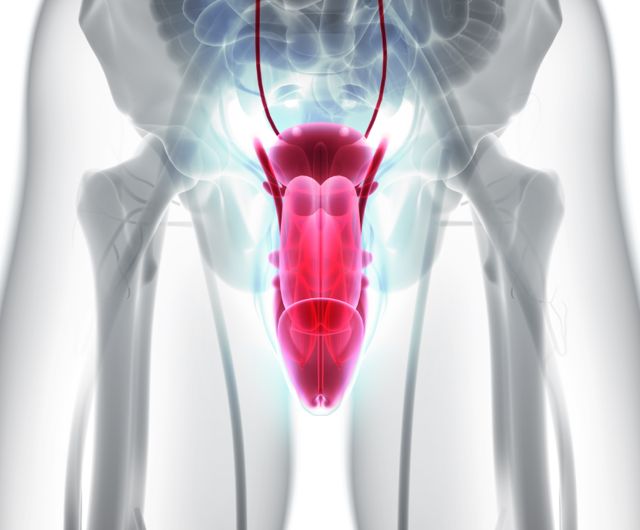
![]()
Penile plaque, for those who don’t know, is when plaque builds up in and around the blood vessels to your penis, causing them to narrow.
This blocks the passage of blood into your penis, making it more difficult for you to get hard.
Less blood flow = softer erections.
It should be clear that this is NOT Penile Curvature, or Peyronie’s Disease. That’s’ when scar tissue builds up which can also cause erection difficulties.
Fortunately, penile plaque can actually be fixed.
- In many cases, it’s relatively easy to cure or reverse
- The cures for penile plaque buildup have a number of auxiliary health benefits
- The treatment is straightforward and relatively easy
Here are 5 ways that you can reduce the penile plaque you have, or help prevent yourself from developing it in the first place.
1. Lose 12 Pounds (or more) to Reduce Penile Plaque

We all know on some level that being overweight is bad for your health, and I think we all also know that it’s bad for your sex life (even if you don’t want to admit it).
However, because your cardiovascular health and your body’s ability to pump enough blood into your penis to get hard are one and the same, the link between being overweight and ED is stronger than you think.
Basically, being overweight taxes your cardio in a big way. And the weaker your cardio, whether it’s due to plaque-filled arteries or just a weaker heart, the worse your erections are going to be.
And this isn’t just a hunch – scientists have confirmed multiple times that obesity and thickening arterial walls have a causal relationship.
The good news, though, is that a study completed in 2011 found that losing weight doesn’t just stop arteries from clogging – it can actually reverse the problem.
The study, completed by Israel scientists at Ben-Gurion University of the Negev and published in Circulation in 2011, looked at the relationship and found that losing at least 12 pounds reduced artery issues caused by atherosclerosis by 5% (source).
The researchers looked at 140 people, aged 40-65 who were both overweight and had heart disease or type 2 diabetes. They were randomly assigned different diets and told to go on their way.
Two years later, researchers checked in to see how the participants were holding up and what was going on in their arteries.
They found that losing 12 pounds reduced the arterial thickness and lowered blood pressure. However, losing less didn’t really have that much of an impact.
It seems there’s some critical 12-pound threshold that people need to cross to really start to see results.
Conclusion? Losing weight is a good way to improve your cardiovascular health in general and will actually reverse any penile plaque that you’ve built up in your system.
How you lose it is up to you, but it’s worth mentioning that the researchers did note that fad diets delivered poor results.
The key is working out a system that actually works for you, not just doing everything you can to lose weight as quickly as possible.
Just remember two things…
First, make sure you lose at least 12 pounds – otherwise, what’s the point?
Second, only undertake this if you’re overweight.
These results are all from participants who were overweight to start with, so if you’re a skinny beanpole then this might not have any impact.
2. Drink Pomegranate Juice to Reduce Penile Plaque
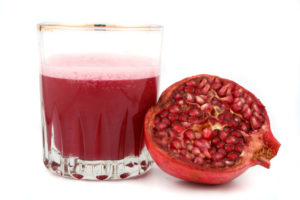
Pomegranate juice has got to be one of the world’s best-kept secrets.
It’s packed with good stuff and can do things like reduce oxidative stress, clear up free radicals, prevent cancer and Alzheimer’s and even improve arthritis symptoms.
In addition to all that, it can help you with your cardiovascular health and reduce and reverse penile plaque buildup in the process.
For starters, pomegranate has been found to prevent plaque from forming in the first place.
Nitric Oxide (NO) is produced in the endothelial cells of your arteries and blood vessels. It’s a key ingredient to getting a good erection as well as having a healthy heart because it’s relaxant.
It’s what causes your arteries and your penis to relax…
In the former, this allows blood to flow better and in the latter, it means that blood can get in and get trapped much more effectively.
A study published in 2006 in Nitric Oxide: Biology and Chemistry found that pomegranate juice will actually support the production of nitric oxide.
The researchers looked at the impact of pomegranate juice on the production of endothelial nitric-oxide synthase (NOSIII). NOSIII production is critical to the production of NO.
Unfortunately, high levels of low-density lipoprotein, or LDL (the so-called bad cholesterol) inhibit the production of NOSIII, which inhibits the production of NO, which causes the arterial walls to harden, which makes plaque buildup much more likely (source).
It’s a little like when you’re cleaning your sink…
The parts of the sink that has water flowing in it every day are free and clear. But the corners, where water tends not to reach is where soap scum will build up.
Your arteries are the same way. When they’re full of NO, they’re like the parts of the sink where water goes – always moving, so nothing can get a grip.
But as LDL inhibits NOSIII and thus NO levels drop, the walls stay still.
Now it’s like the corners of your sink, where the water isn’t running, plague begins to build up and your arteries get blocked.
Pomegranate promotes NO production, keeping arteries fluid and thus, helps to prevent penile plaque.
But pomegranate can also help Reverse (not just prevent) arterial plaque.
A study published in 2005 looked at the effects of using pomegranate juice to treat damaged and hardened endothelial cells.
They found that they could reduce the area of arterial walls that hardened over time by up to 26% and help keep them that way, allowing for a significant improvement in blood flow (source).
Another study used human subjects rather than just cells and found a similar result.
When they gave one group pomegranate juice every day for three years and the other group a placebo, they found that the pomegranate reduced the plaque buildup by 35% over three years (source).
The same goes for your penis. The more blood you can push through your arteries and the softer and more flexible your blood vessels are, the faster and easier you’ll find it to get hard.
3. Take Magnesium to Reduce Penile Plaque
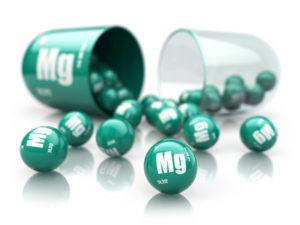
In addition to improving overall cardio health by losing weight and drinking pomegranate juice, there are a few supplements that you can take to help relax the arterial walls.
Again, this will prevent plaque from building up and keep everything flowing as it should.
Scientists have found a correlation between low magnesium and arterial stiffness…
There’s also evidence that magnesium will help chip away at plaque build up as a result of arterial calcification.
Arterial calcification is the result of tiny pieces of calcium clinging onto arterial walls and slowly building up, like tiny stalactites and stalagmites.
Researchers in Boston in 2014 found that even small doses of magnesium daily were enough to cut calcification by up to 25% (source).
4. Take Vitamin K2 to Reduce Penile Plaque
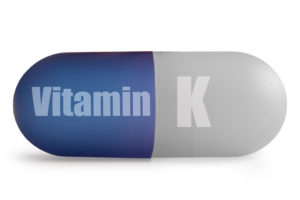
The next supplement on our list is K2. Vitamin K2 is like a great supporting actor….
It helps keep other systems in your body running smoothly, particularly the relationship your system has with vitamin D and calcium.
You see, these vitamins along with calcium work in concert together.
Calcium just gets in the way unless its put in the right place, like your bones or teeth.
Vitamin D helps with calcium absorption, but doesn’t tell calcium where to go. So if you take calcium and vitamin D, then you’ve got more calcium to deal with and a greater capacity to absorb it.
Which means that mistakes can happen.
Calcium ends up deposited in all sorts of places it’s not supposed to be, like along your artery walls and the lining of your penis.
And this is where vitamin K2 comes in…
While calcium makes your bones stronger and vitamin D will help the calcium be absorbed, vitamin K2 tells your body where the calcium is needed most.
Its like the guide dog for calcium formations – it gets it where it needs to go.
What’s more, vitamin D and vitamin K2 actually work together to protect your arteries and other soft tissues from calcification. They help produce Matrix GLA Protein (MGP), a protein that stops the process of arterial calcification.
So essentially, by taking vitamin K2, you make it much more difficult for calcification of your arteries to happen.
Not only is there less calcium floating around, but the calcium that IS floating around will be much less likely to be deposited in the arteries leading to your penis.
5. Do the Linus Pauling Protocol to Reduce Penile Plaque
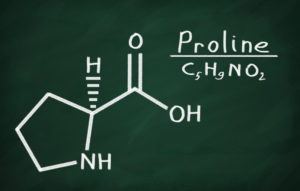
You might not have heard of him, but Linus Pauling is a big deal.
He’s the only scientist to ever be awarded two unshared Nobel prizes and is one of only four people to have won more than once.
He published over a thousand papers and books in his career and helped found molecular biology.
Towards the end of his life, he started working on the role of vitamins in cardiovascular health and before he died in 1994, he developed the Linus Pauling Protocol.
The Linus Pauling Protocol is a system used to fight heart disease, but it can be easily adapted to specifically help promote erectile health and reduce arterial hardening.
It works like this…
Basically, you take vitamin C and two amino acids, L-Lysine and L-Proline, and that’s it.
The science behind this is pretty nifty.
Collagen is the primary building material of your body. If your body was a skyscraper, the steel frame would be your skeleton and collagen would be the concrete. That’s a little exaggerated, but not much.
Arterial walls, skin, muscles, ligaments… you name it, and collagen connects it.
If you’re not making enough collagen, then instead of the collagen chains criss-crossing like a chain link fence, they sit in separate, parallel lines to stretch out and cover a larger area.
This makes them weak and much more susceptible to damage.
Pauling argues that heart disease is a chronic breakdown of collagen, resulting in very weak arterial walls.
To stop blood from leaking out of your arteries, you body patches the holes with calcium – those nasty deposits that narrow your arteries.
Over time, these patches clog your arteries and harden the walls, both of which make it harder for you to get hard.
Fortunately, the solution is both simple and cheap. All you need to do is promote collagen production.
Here’s how…
Step 1: Take Vitamin C: Vitamin C enters the conversation early.
It’s required to make lysyl hydroxylase, a critical enzyme. Without it, collegen doesn’t get made, and the collagen strands become weaker.
Supplementing with vitamin C will give your body the stuff it needs to make more collagen and fix all the various arterial weak spots with a strong chain linked fence style construction.
Dosage wise, you should shoot for about 3 grams daily.
Step 2: take L-Lysine and L-Proline: To make collagen, your body twists together ropes of 3 amino acids….L-Lysine, L-Proline, and L-glycine.
You need enough of these building blocks in order to increase how much collagen is in your body.
And that’s why Pauling recommends you take take L-Lysine and L-Proline.
L-Glycine is one of the 10 amino acids your body can produce. But you can’t produce L-Lysine and L-Proline.
You also can’t store these amino acids — you need to consume new ones every day for your body to use them to make collagen.
If you have enough of these three amino acids, then your body will find the holes in arterial walls where the collagen has snapped and fix these molecular threads.
But to do that, it needs ready access to L-Lysine, L-Proline, and L-glycine.
Otherwise, all your vitamin C will go to waste.
It’d be like buying a power drill to build a house faster, but not having enough screws to screw stuff together.
So to ensure that your body has enough, you want to take about 3 grams of L-Lysine and 1.5 grams of L-Proline, along with vitamin C every day to build up your collagen levels.
Combined, these steps form the Linus Pauling Protocol.
Follow this protocol and your arteries will be soft, supple, and calcium-deposit free.
6: Vitamin E
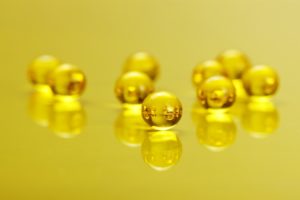
Numerous studies have established that vitamin E inhibits oxidation of LDL cholesterol.
And this is good news because oxidized low-density lipoprotein contributes to plaque formation and progression inside the penis.
LDL cholesterol particles actually contain 5–9 vitamin E molecules that are thought to protect the LDL from oxidative damage (source).
Vitamin E has also been linked in to improvements in blood lipid profiles, arterial stiffness and improved endothelial function.
Vitamin E also inhibits the production of proinflammatory cytokines that can cause inflammation and reduce blood flow to the penis.
Vitamin E also makes your blood less sticky, reduces clot formation, and enhances the flow of blood through the blood vessels and arteries.
If you’re not supplementing with E, or getting enough in your diet read this blog post to get my vitamin E product and dosage recommendations.
7: Extended Release Niacin
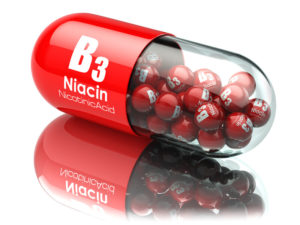
A recent study found that Niacin outperformed the highly touted cholesterol lowering drug Zetia in reducing plaque buildup in the arteries.
The study used a modified extended release Niacin, which has been shown to increase levels of HDL, AKA good cholesterol (source).
During the very short study period, the extended release Niacin reduced artery plaque by an impressive 2%.
Niacin has also been shown to reduce blood triglycerides by a whopping 40% and to decrease LDL (bad cholesterol) by 40% as well.
Interestingly, triglyceride lowering medications don’t have the ability to also lower LDL cholesterol, so Niacin beats out the prescription medications once again.
I do need to mention that other studies have had conflicting results regarding Niacin and plaque reversal, but most of these included study participants who were using Statins as well.
The take home here is, if you’re not using Statins, extended release Niacin will likely do you some good.
On the other hand, if you’re currently using Statin medications you may want to focus on the other plaque reduction protocols found on this page.
Finally…
Dosage wise, the sweet spot appears to be 500mg of extended release niacin daily, taken in the evening with food to prevent flushing and other side effects.
How to Reduce Penile Plaque – Conclusion:
Fortunately, penile plaque is a reversible condition…
But it’s also an early indicator of cardiovascular problems that may have major negative implications down the line.
This fact explains why monitoring your erections and taking action when necessary is so critically important.
So lose that extra weight, drink your juice, and take your vitamins….
Your sex life and your cardiovascular system will thank you for it.
